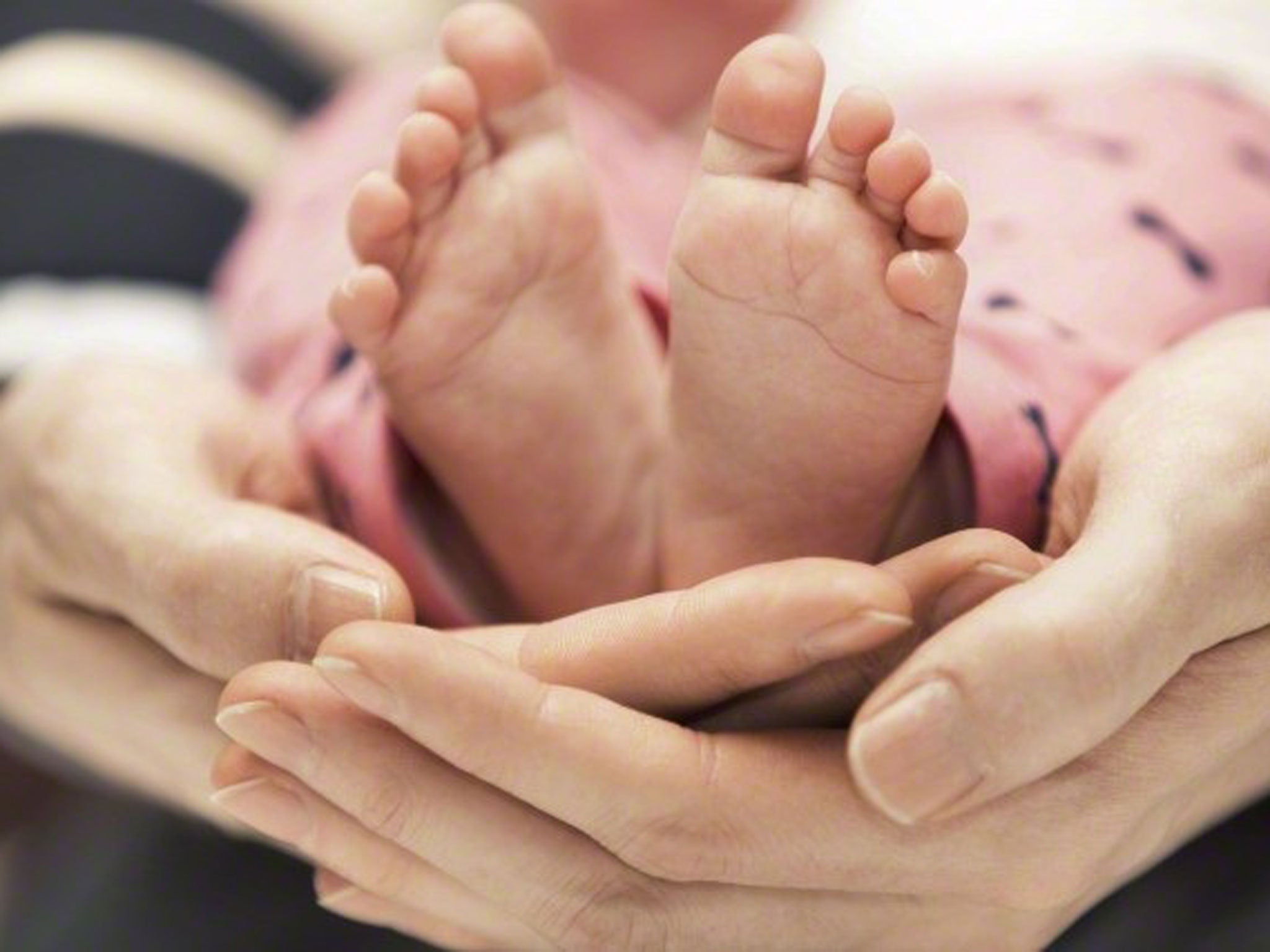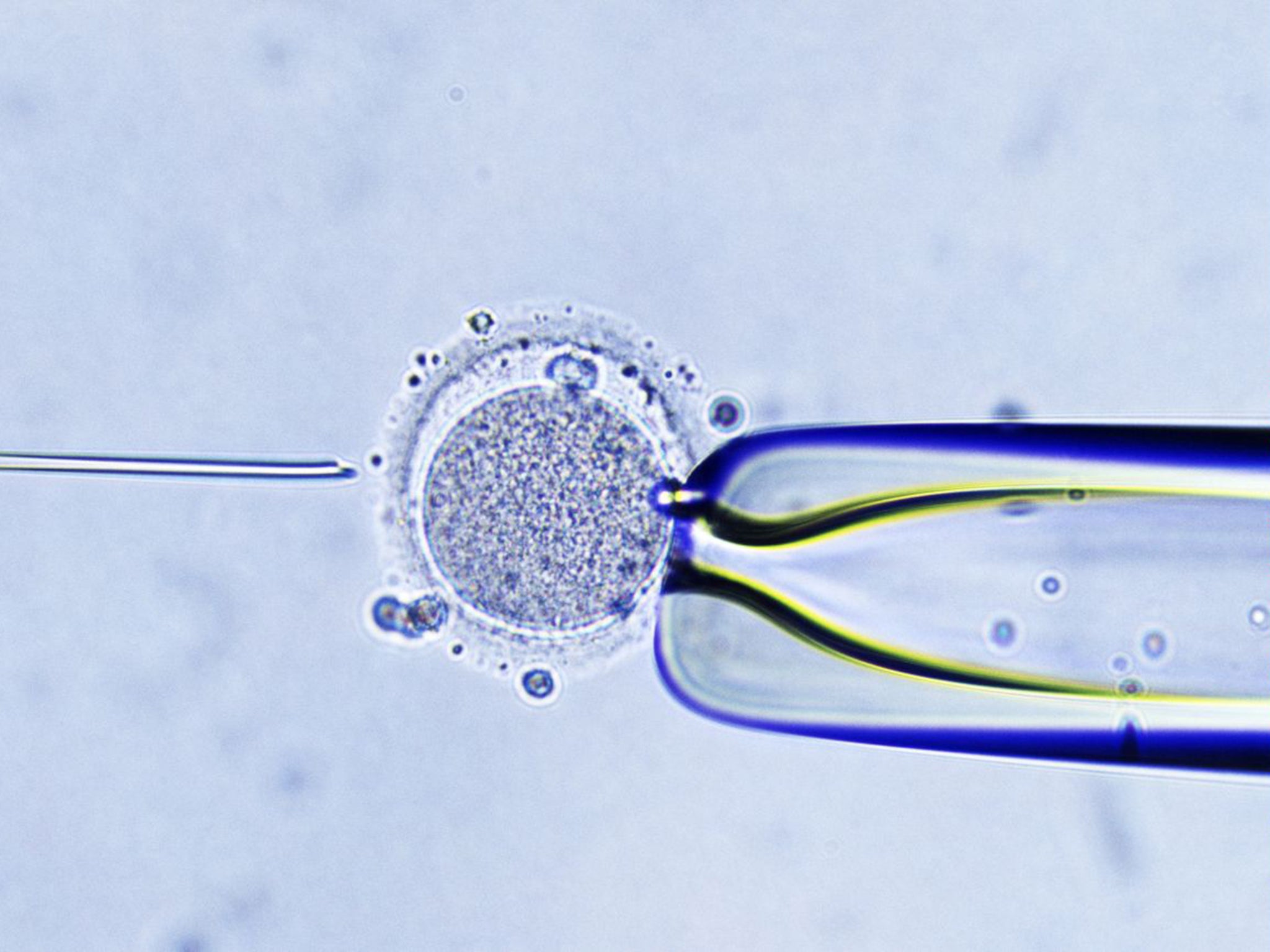Three-parent babies: Britain is breaching EU law and has 'violated human dignity', MEPs warn
Group of 50 MEPs have written to Prime Minister David Cameron, asking him to withdraw the legislation

Your support helps us to tell the story
From reproductive rights to climate change to Big Tech, The Independent is on the ground when the story is developing. Whether it's investigating the financials of Elon Musk's pro-Trump PAC or producing our latest documentary, 'The A Word', which shines a light on the American women fighting for reproductive rights, we know how important it is to parse out the facts from the messaging.
At such a critical moment in US history, we need reporters on the ground. Your donation allows us to keep sending journalists to speak to both sides of the story.
The Independent is trusted by Americans across the entire political spectrum. And unlike many other quality news outlets, we choose not to lock Americans out of our reporting and analysis with paywalls. We believe quality journalism should be available to everyone, paid for by those who can afford it.
Your support makes all the difference.Members of the European Parliament have warned Britain is breaching EU law by allowing the creation of "three-parent babies".
A group of 50 MEPs have written to Prime Minister David Cameron, asking him to withdraw the legislation, which they said had "violated human dignity", it has been reported.
Peers were today due to vote on the historic legislation, which would see the UK become the first country in the world to allow the creation of IVF babies using DNA from three different people.
MPs, including all three main party leaders, voted earlier this month in the Commons to legalise the procedures, which are aimed at preventing serious inherited mitochondrial diseases.
The chief medical officer for England has now urged the House of Lords to approve the amendment to the 2008 Human Fertilisation and Embryology Act.
The group of 50 MEPs, including Slovakian MEP Miroslav Mikolask, have written an open letter warning Mr Cameron the new laws breach the EU's Clinical Trials Directive, The Telegraph has reported.
In the letter, Mr Mikolask and the 49 other MEPS write: "Your proposals violate the fundamental standards of human dignity and integrity of the person. Modification of the genome is unethical and cannot be permitted.
"These proposals put the UK out in front of a race to the bottom so far as standards of human dignity are concerned."
The European Commission has also been asked to take action to stop the technique from being allowed.

The move comes as 55 Italian MPs also urged the House of Lords to reject the law in a letter to The Times, saying the procedure "could have uncontrollable and unforeseeable consequences, affecting future generations, and modifying genetic heritage in an irreversible way, inevitably affecting the human species as a whole".
Elsewhere, opponents including church leaders and pro-life groups have warned the change has been brought about too hastily and marked the start of a "slippery slope" towards designer babies and eugenics.
Chief medical officer Dame Sally Davies however has said: "I want them to consider in the Lords what this is. It's quite separate from the illegal act of changing DNA in the nucleus.
"It would give these women their own children and these families hope, and I believe this is right.
"We have a very strong regulatory system that would regulate first the service and secondly would review every individual case before they could happen."
The Government's most senior health advisor admitted there would be an increased miscarriage rate if the treatment fails, but said there was "no expectation of that".

Two types of mitochondrial donation technique have been developed. Both involve transplanting a mother's nuclear DNA into a de-nucleated donor cell, although one is carried out before fertilisation and the other is done afterwards.
Critics have pointed out no clinical trial has taken place to show conclusively the treatments are safe in humans.
Three separate expert reviews for the Human Fertilisation and Embryology Authority however have suggested the procedures are ready to go forward.
Dame Sally said: "The only clinical tests you can do are either in rats, mice and monkeys - and those have been done - or in humans and the mothers now want to do this following those three scientific reviews.
"I wouldn't call it a test, but the first cases will be scrutinised very carefully."
She also denied the legislation would give way to the creation of designer babies.
"This is about changing the battery packs, it's not about touching the chromosomes that make us what we are," Dame Sally said.
"The nucleus is sacrosanct and it is illegal to touch it.
"There is no debate, nor needs there to be, about touching the chromosome, we are not talking about that, we are talking about mitochondrial transfer."
The move to amend the 2008 Human Fertilisation and Embryology Act was carried by 382 votes to 128 in the Commons earlier this month.
The procedure is believed to have the potential to help almost 2,500 women in the UK who are at risk of transmitting harmful DNA mutations in the mitochondria, research has suggested.
The first baby conceived with the treatment may be born as early as next year.
Additional reporting by PA
Join our commenting forum
Join thought-provoking conversations, follow other Independent readers and see their replies
Comments